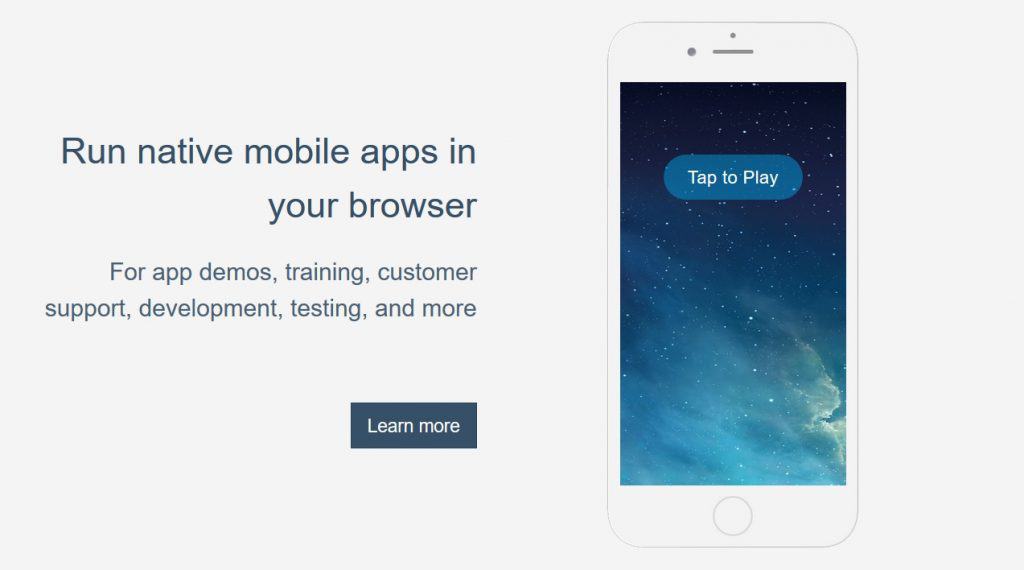There are a number of reasons why you would want to run Apple IOS apps on Android using IOS emulators. Some of the apps and games are only available for IOS and not on Android so you may want to check them out. Especially games that launch early on iOS take a little while to come on Android so it would make sense that you try to emulate them on the platform you readily have.
Not all people have the capacity or financial ability to purchase a separate IOS iPhone or iPad, so running Apple IOS apps on Android using IOS emulators is a financially better option. Of course, just like any emulator, there are some restrictions that come into play when using apps specifically designed for IOS on Android but if you’re willing to overlook those restrictions, it is generally a smooth experience. One point to be noted here is that most of the emulators require a large amount of RAM, so anything above 512 MB is going to be needed. Thankfully, most Android smartphones these days come with one gigabyte plus RAM, even the budget ones reach that with ease so you don’t have to worry about that at all.
Note: The IOS emulators on Android are not official pieces of software. There also not available on Google play store so you’ll have to go to third-party links to download them. Of course, there is an inherent risk on obtaining pieces of software there are not available officially on Google Play Store. You also have to sideload the APK files on your smartphone, which is also a big risk. While we ran these APKs on our best phone and found no malicious code here in them, there is still always going to be a risk of your device getting infected. If you’re already here, you probably know all the risks involved so we won’t detail those. However, we are not responsible for any kind of harm these third party APKs might do to your device.
Table of Contents
iEMU

If you’re looking for the most popular iOS emulators for Android, then iEMU is certainly going to be the first big for many people. This emulator is able to provide you a virtual iOS environment on your Android device allowing you to install IOS apps and games with ease. The best thing is, the emulator does require a lot of storage space to install and surprisingly don’t require much resources to run regular apps. Of course, running games is a little bit stressful and honestly, many games didn’t work well at all.
Thing about this emulator is that it is open source and is being actively developed by many talented developers. Sure, there are many bugs to be found in the emulation but that is to be expected. Overall it’s a great piece of software that you can easily install on any Android device and start using IOS apps on it. There are a few steps to guide you through the whole process:
- Download the APK file from this link.
- Once it’s downloaded, tap on the notification or use your favorite file Explorer to navigate where it’s downloaded.
- Tap on the APK file and you’ll get a notification telling you that it is not secured install it.
- You can easily bypass that security check by going to System Settings > Security, and finding the option that says “Allow the Device to Install Applications from Unknown Sources”
- Now the APK will take a few seconds to install iEMU on your Android device.
- After it’s installed, go to your app drawer and find an app named “Padiod”. This is the emulator.
- Now you to do is simply launch the app and start using IOS apps on your Android.
CIDER

CIDER is made students over at the camera science department at Columbia University and it works perfectly well at providing your platform to run iOS apps on Android. Is basically similar to what iEMU does and comes in an APK file as well. Accessing all the iOS apps and games on your Android device is pretty much straight forward with this app. All you need to do is simply download, install and that’s about it, then you’re ready to install iOS games and apps on your device.
However, there is a slight problem though, CIDER doesn’t work on all Android devices so you’ll need to manually check if your device is supported are not. This is not a big problem if you have a fairly popular smartphone though, chances are it will be supported with ease. However, your device is from an unknown manufacturer, there is a chance that it won’t be supported. Thankfully, you can simply use the number one app to run Apple IOS apps on Android using IOS emulator so no harm no foul. Here’s how you can get CIDER installed and ready to roll:
- Download the CIDER APK file from this link.
- Install it by sideloading it. You can follow the instructions to sideload from the iEMU installation steps. They are exactly the same.
- After it is installed, simply go to the App drawer and launch it.
- That’s it, now you can easily run iOS apps and games on Android.
See also: Best Browser Games
Appetize iOS Emulator

This one here is a browser-based iOS emulator that can run on not only Android but also any other device with ease. It works with JavaScript and HTML 5 and is the only emulator we’ve tested that worked perfectly fine online without any hitches. So if you are simply looking to test out one or two apps, Appetize iOS Emulator is easily the best choice among all emulators. Not only it’s very convenient but also eliminates any kind of risks that third-party APK files may pose. So you get to test or play an app and you won’t even have to install anything on your Android device, it’s a win-win situation. You can follow this link to learn more about it.
Ending Words:
These were some of the methods of how you can run Apple IOS apps on Android using IOS emulation. We still recommend that you borrow your friend’s iPhone or iPad to test out the apps or play the games yourself. However, if that is not an option, these emulators and methods will work perfectly fine and providing you an almost stable iOS environment on Android.
So what do you think about these emulators? Are you going to use them or get an inexpensive used iPad to try apps and games out? Do tell us your personal plans in the comments, we always love to learn more.
